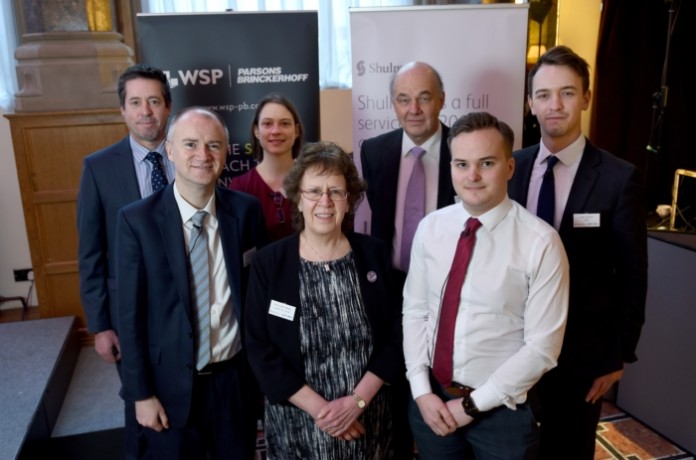
The future of Leeds’s transport and infrastructure network is at a crossroads according to senior members of Leeds City Council and industry experts.
With a proposal in place to spend more than £270million of investment on the city’s infrastructure, a seminar was held yesterday to discuss the planned initiatives, including new rail halts, upgraded trans Pennine rail connections and improvements to Leeds train station, which could provide the greatest catalyst for economic growth.
Despite Leeds experiencing strong growth in its retail, property, manufacturing and digital sectors, the city still faces a significant challenge to ensure the benefits are felt across the city.
The seminar, hosted by Shulmans LLP and WSP Parsons Brinckerhoff, was attended by speakers from the Institute for Public Policy Research (IPPR), Legal and General Capital and Transport for the North as well as 150 invited guests from key businesses in the area.
Starting the debate, Councillor Judith Blake, Leader of Leeds City Council said: “The Leeds and wider city region economy is continuing to grow and develop, but what is holding it back from really flourishing is poor connectivity through slow and unreliable transport networks. The proposed £270million Leeds transport package is the first step on the way to addressing those issues in our city, but it is important to note it is just the start with much more meaningful investment in infrastructure being needed to speed up the whole process of connecting people and businesses with jobs and opportunities.
“As a city, Leeds continues to be ambitious and we know that means having a modern rapid mass transit system, so we are calling on everyone in the city and public and private sector organisations alike to work together to make the case to the government so we can get the substantial funding it would need and viable plans in place as soon as possible.”
Adrian Kemp director at WSP | Parsons Brinckerhoff commented: “Leeds must be ambitious and forward-thinking in its approach to transform the city’s transport network in a way that aligns with the city’s plans for growth, both economic and in terms of population. Key to the success of any integrated transport system is an understanding of the socio-economic and demographic make-up of the areas to identify those that need better connections across the city and wider region. Put simply, it’s about connecting people to jobs through better transport links across the city region and the wider North. By starting with people first, we can future-proof our transport system, and strengthen Leeds’s offer as part of the Northern Powerhouse.”
Andrew Latchmore, Chair of the debate and Partner at Shulmans, added: “It is great to hear that a significant upgrade is planned for our city’s transport network. Delivering this alongside a complete transformation of Leeds City Station will create a world class integrated transport hub. Bringing together enhanced local and trans Pennine services with bus services, and eventually HS2, will take Leeds up a gear, making the city a number one choice for UK or international businesses looking for a new home.”





















